Select a province & language
Entrance to this website assumes you have read and agree to these Legal Terms and Conditions and the Privacy Policy.
Entrance to this website assumes you have read and agree to these Legal Terms and Conditions and the Privacy Policy.
SUV stands for sports utility vehicle. SUVs are a special kind of vehicle, in that they offer some of the capabilities of traditional trucks, with providing many of the driving characteristics and comforts of a car. They feature off-road capabilities and cargo space that cars typically don’t, making them incredibly versatile. As a result, SUVs have become increasingly popular with Canadian drivers.
While SUVs are their own class of vehicle, there are several different types of SUV within the category including subcompact, compact, mid-size and full-size SUVs. As you can tell from the names, the differences are largely based around size, with subcompact being the smallest in the class. Larger classes of SUV like full-size will typically offer more passenger room, seating capacity, and interior space both in the cabin and cargo area, plus more powerful engines. Every SUV size has something to offer, based on what drivers are looking for. Fortunately, Toyota offers one of the widest SUV lineups on the road today, so it’s easy to find the one that’s right for you.
There are many things to consider when buying an SUV. One of the most important considerations is seating capacity. Subcompact SUVs like the Corolla Cross and compacts like the RAV4 are 5-seaters. The Highlander and Grand Highlander, as well as other 3-row SUVs like Sequoia are available as 7-seater or 8-seater models.
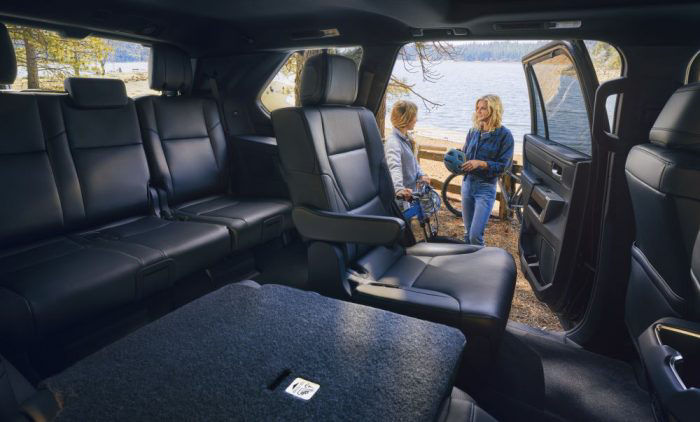
Something else to think about is cargo capacity. If you’re looking for the SUV with the most cargo space, you’ll definitely want to look at what Toyota has to offer. Take the mid-size 4Runner. It offers 47.2 cubic feet of space behind the second row and 89.7 cubic feet when the second-row seats folded down. By looking on Toyota’s website, you can see the cargo capacities for each vehicle, to determine which SUV is right for you.
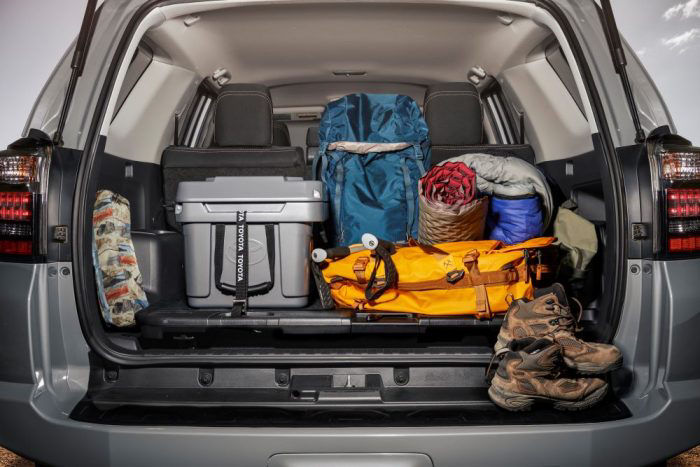
Towing capacity is another important feature that people look for in SUVs. With their more powerful engines, Toyotas are well known as SUVs with towing capabilities and can tow anything from a small boat to a full-size travel trailer. In fact, the Sequoia has a maximum towing capacity of up to 9,121 pounds, making it one of the best SUVs for towing.
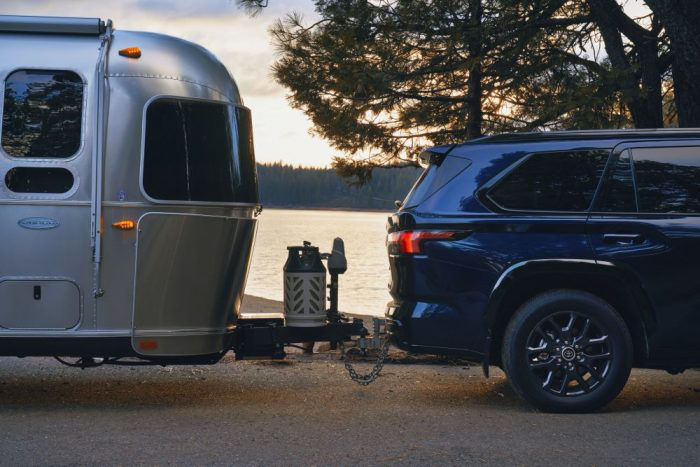
While SUVs are larger vehicles, you may be surprised at the positive balance that they strike between engine performance and SUV fuel-efficiency. And that is even more pronounced on hybrid SUVs like the RAV4. As an example, the 2024 RAV4 Hybrid is rated at 5.8 L/100 km in the city, 6.3 on the highway, and 6.0 in combined driving, which makes it one of the best in the industry for its class. So if SUV gas mileage is important to you, Toyota has you covered.
A major consideration when looking at these kinds of vehicles is SUV safety. All Toyota SUVs comes standard with Toyota Safety Sense, a suite of advanced safety features designed to support your awareness and decision-making across a range of speeds and driving conditions. These features include pre-collision system, lane-departure alert, dynamic radar cruise control, and more. Together, they help keep you and your family safe, no matter which Toyota SUV you are driving.
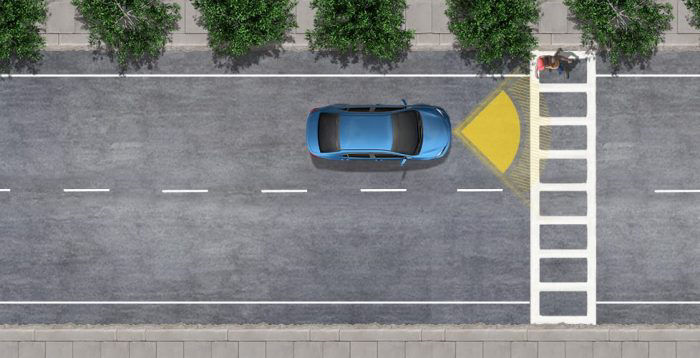
In Canada, winter driving can pose a serious challenge. Toyotas are some of the best SUVs for snow and the kinds of winter driving conditions found in the country. In fact, Toyota has a cold-weather facility in Timmins, Ontario to test its SUVs under the most extreme circumstances, so they’re suitable for our winter conditions. That way, you can depend on Toyota’s SUVs to start even when it’s 40 below and there is 40 centimeters of snow on the ground.
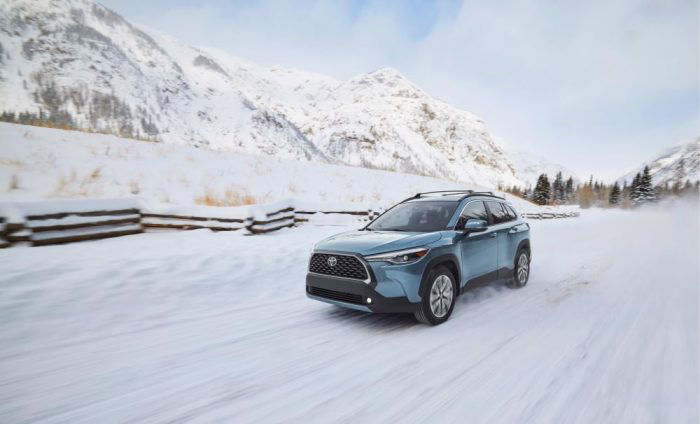
As you look at SUVs, you may notice that some feature all-wheel drive and some feature front-wheel drive. AWD, 4WD and FWD might be difficult to understand but here are the differences:
Front-wheel drive sends power directly to the front wheels and holds most of its weight over the front wheels, helping drivers retain traction on slippery roads. Front-wheel drive is also a compact system that weighs less than other drivetrains and frees up extra cabin space.
All-wheel drive is designed to get the most traction in slippery conditions. AWD splits the torque between the front and rear axles using an electromagnetic coupler between the driveshaft and rear differential. This allows for up to 50% of the torque to be distributed to the rear wheels. All-wheel drive often utilizes advanced technology with sensors on each wheel that monitor traction, wheel speed, and more.
Part-Time 4WD: Designed for rugged capability, in a part-time 4WD system the driver manually engages or disengages the 4WD mode as needed. Part-time 4WD distributes power to all four wheels to maximize grip, increasing traction and control in challenging environments. It is not recommended for use on dry, paved roads as it can lead to driveline binding and increased wear, therefore should only be used in lower-traction surfaces such as snow, mud or dirt.
Full-Time 4WD: Full-time 4WD systems automatically distribute power to all four wheels at all times, without requiring driver intervention. It provides constant traction and is beneficial in changing driving conditions, designed for use on all types of surfaces, including dry pavement.
The durability, capability and reliability of Toyota SUVs mean several of them are perfect candidates for off-roading and overlanding adventures. 4Runner, Land Cruiser and Sequoia in particular are well-suited to the rigors of getting off the pavement, with the power and torque to handle when they are off-road… and even when there’s no road! Toyota’s off-road SUVs and overlanding SUVs even offer special packages available to enhance those capabilities.
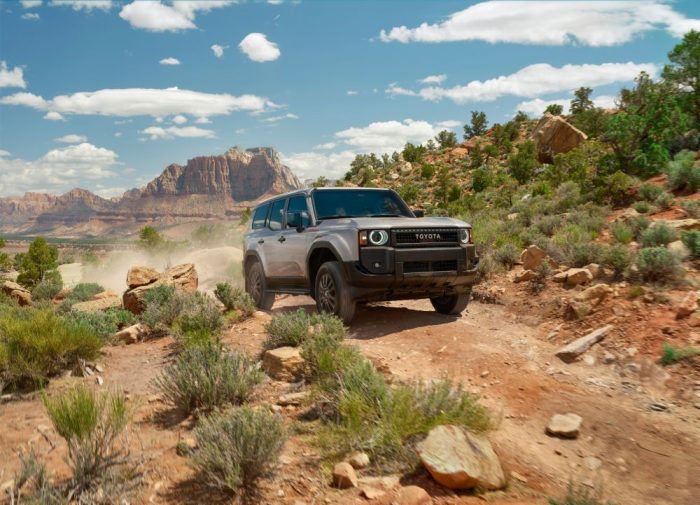
Toyota has an electrified vehicle for virtually every lifestyle, and that extends to its SUVs as well. Because Toyota believes different needs require mobility solutions, we offer a range of electrified technologies.
Hybrid Vehicles (HEVs) seamlessly combine the power of a gas engine with electric motors. And because the hybrid battery recharges on the go, you never need to plug in. Toyota has a wide lineup of hybrid SUVs, including the new Crown Signia to full-size SUVs like the Grand Highlander.
PHEVs operate in the same way as Hybrid vehicles but can optionally be plugged in for extended electric-only range. The RAV4 Plug-In Hybrid is a PHEV SUV.
BEVs are zero-emission vehicles that are powered by electricity alone. Electric vehicles require plugging-in, while also utilizing regenerative braking to recharge the onboard battery as you drive. An electric SUV that Toyota offers is the bZ.
As you can see, there are many considerations when you are looking at buying an SUV. So how do you choose the best SUV for your lifestyle? Happily, that’s easier than ever before. Toyota has an SUV to suit practically every lifestyle, and finding out all the information you need is just a click away. Now that you know a bit more about what Toyota SUVs have to offer, just build and price the one that suits you perfectly.
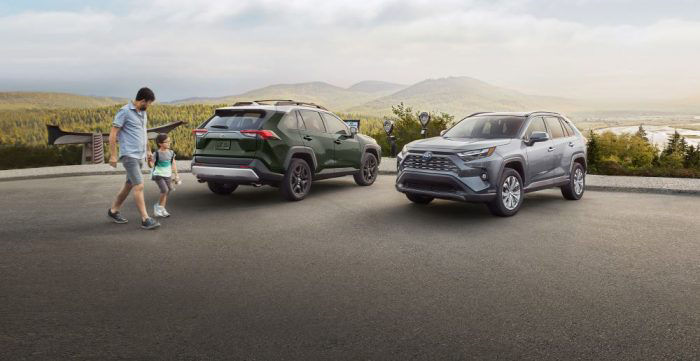
The Toyota SUV lineup offers multiple powertrains, including conventional gas engine, hybrids, plug-in hybrids, and all-electric SUVs.
Toyota offers a wide range of SUV sizes, including subcompact, compact, mid-size, and full-size or large SUVs.
Toyota Hybrid SUV lineup includes Corolla Cross, RAV4, Highlander, Grand Highlander, Crown Signia, Sequoia, 4Runner and Land Cruiser.
Yes, Toyota offers the new 2026 bZ electric SUV, the bZ Woodland and the new fully electric Toyota C-HR.
Toyota offers several 7- or 8-seater SUVs, available in Gas and Hybrid models:
Yes, Toyota offers 3rd row SUVs, including the Grand Highlander, designed for maximum space and comfort for families; the Highlander, a popular midsize SUV; the full-size Sequoia with robust performance and space; the 4Runner, an off-road SUV which features a third row on the SR5 and Limited trims.